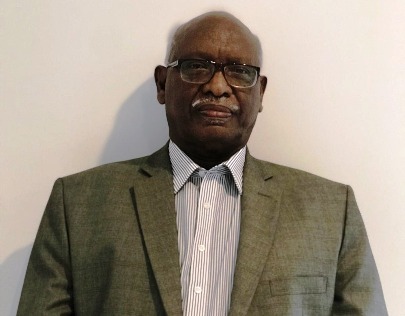Opinion
Is Sudanese Society Ready for Democracy?

By Zain Al-Abidin Saleh Abdul Rahman
Before delving into the issue of democracy in Sudan, there are several questions that need answers. These questions must be addressed individually, without jumping to preconceived conclusions. This approach is crucial because many political forces tend to avoid self-reflection to prevent reaching conclusions born out of personal contemplation. Such self-reflection could foster new political awareness that might lead to critically evaluating all the narratives heard from political parties. Awareness, reading experiences, and drawing lessons from them are not only lacking among the general public but also among those who label themselves as politicians. This absence acts as a barrier to correcting mistakes and addressing the negatives that hinder political, social, and security stability. Thus, it is essential to answer these questions to address the challenges that have obstructed political awareness and, subsequently, the failure of political and security stability and progress.
1. Are Sudanese political parties genuine institutions that practice democracy and leadership rotation at specified intervals, so that these parties can effectively transfer their democratic experiences and practices to society and, eventually, the state? Or are they merely slogans that cover up private and partisan interests, which act as obstacles to the process of development, modernization, and the success of democracy and progress?
2. Regarding post-independence democracy in 1956, who was responsible for its downfall in 1958, which led to the military stepping into the political arena? Did the political parties hold those who overthrew democracy accountable? Did they at least conduct a study to inform the public of the reasons that pushed a party, operating within a democratic system, to prompt the military to stage a coup? Or did overlooking accountability for the party and those responsible for the coup pave the way for others to repeat the same act?
3. What were the motives behind the 1969 coup? This coup led to four major issues that had significant negative impacts on political stability, development, and the reduction of freedom in the country. Have the political parties studied this experience to correct their mistakes?
**Four issues should always be remembered so that the reader does not lose sight of them:**
– **A.** The alteration of the educational ladder and curriculum in 1970 weakened the educational process.
– **B.** The nationalization and confiscation decisions targeting banks, particularly foreign banks, and foreign capital in the first anniversary of the coup. These decisions led to the deterioration of the economy in the country and eventually resulted in the devaluation of the Sudanese pound against the dollar. Before nationalization, the pound was equivalent to three and a half US dollars.
– **C.** The amendment of the labor law during Farouk Abu Issa’s tenure as Minister of Labor, which subjected unions to the authority of the Socialist Union.
– **D.** The establishment of the Security Service, which marked the first time that political processes were subjected to the intervention of a security apparatus to suppress and monitor political forces. Ironically, those who introduced the idea and sent security personnel for training in East Germany were the most affected by the apparatus later and became its most vocal critics.
4. Have the political parties conducted an objective study of the NCP’s rule to identify its major mistakes, document all violations, and understand the reasons why the political parties and movements failed to overthrow the regime, while the street succeeded in toppling the NCP?
It is noteworthy that the NCP learned from the experience of the 1969 coup and followed similar steps, such as amending the labor law and subjecting unions to the ruling party’s authority. The NCP expanded the security apparatus to pursue politicians and control political activities. It restricted press freedoms, making them subject to pre- and post-publication censorship and confiscation by the security apparatus. The NCP also established the Ministry of Social Planning to engineer social change, targeting all capitalists who were not loyal to the regime. Corruption in governance spread, as acknowledged by President Omar al-Bashir and the Director of Security and Intelligence Salah Gosh. The proliferation of weapons in the country resulted from the fragmentation of movements and the formation of the Rapid Support Forces, exacerbating regional and tribal tensions, among other issues.
All these experiences were marred by negative practices that the political parties should have studied before a revolution occurred that led to the change of the regime without a clear political project grounded in previous experiences. Such studies could have helped the forces that came after the regime to avoid past mistakes and implement necessary corrections. However, the parties are always caught off guard by revolutions and are left with nothing but slogans they know they lack the tools to implement, leading them to repeat past mistakes. They fail to critically analyze their experiences to identify the causes of failure and incompetence, instead always seeking justifications to avoid being accused of mistakes. We are currently discussing an ongoing experience where the parties have nothing to offer but justifications.
Another issue: Does Sudanese society, with all its ethnic, regional, and cultural diversity, support the success of the democratic transition? Ideally, political parties should serve as an alternative to ethnicity and regionalism, adopting their issues, demands, and aspirations. Are the parties capable of becoming a beneficial alternative and providing a solid foundation for the democratic transition? Do the political parties have a detailed political project for achieving the democratic transition? Each person should ask themselves these questions and answer them based on their awareness, not on empty slogans. May God grant us good insight.



